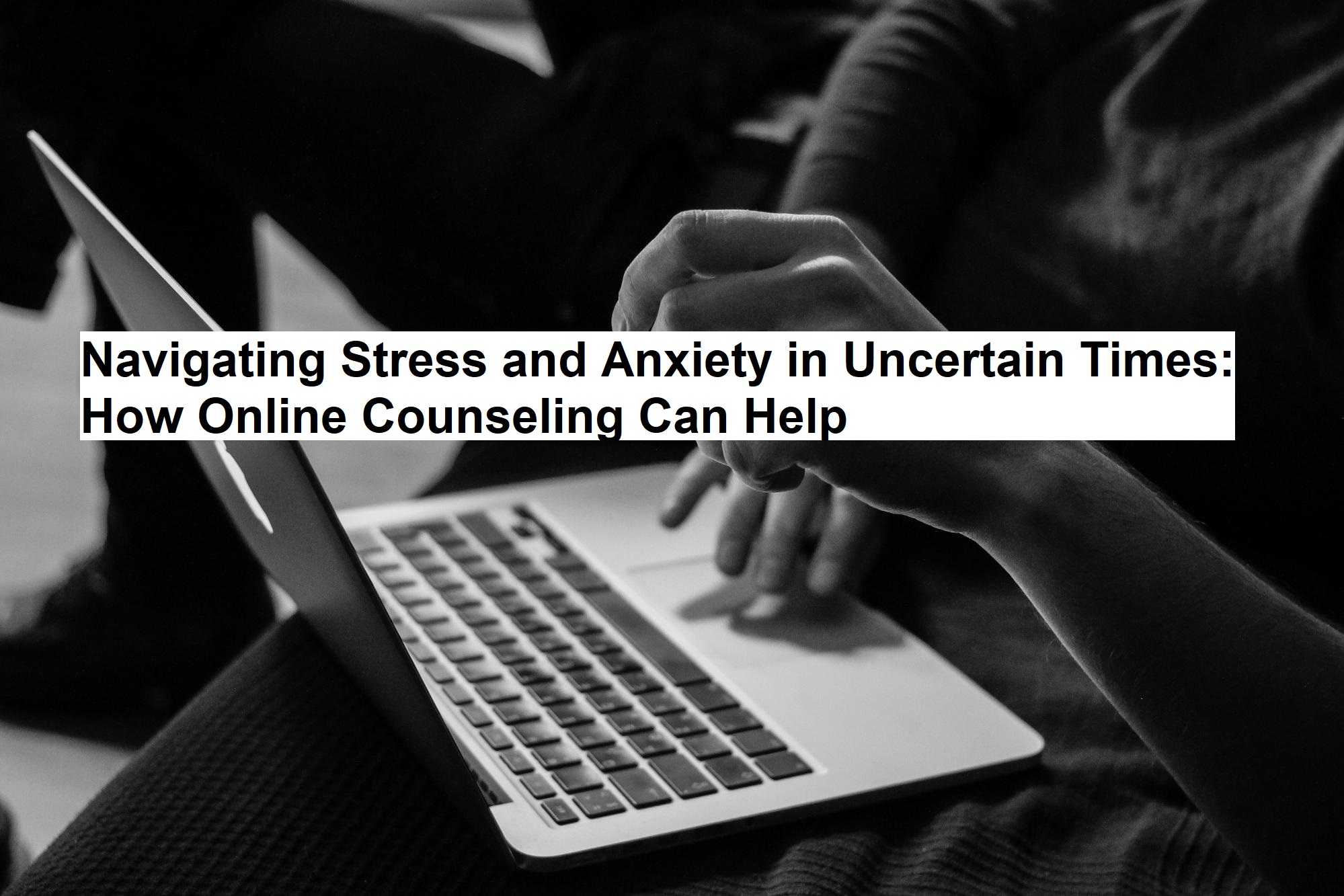Uncertain times can exacerbate stress and anxiety, challenging our ability to cope and maintain emotional well-being. The COVID-19 pandemic, economic pressures, and social changes have thrust many individuals into struggling with heightened levels of distress. As traditional methods for managing mental health face new constraints, online counseling emerges as a vital resource offering accessibility and flexibility. Below, we explore how this contemporary approach can help navigate through these trying times.
Benefits of Teletherapy for Stress and Anxiety Management

Teletherapy, a component of telehealth, offers therapy services digitally, aiding stress and anxiety management. Its privacy fosters open communication crucial for effective therapy, while being in familiar surroundings promotes relaxation. Studies suggest consistent online counseling leads to improved stress and anxiety outcomes.
It provides structured sessions without the stress of in-person meetings. In anxiety treatment, therapists use evidence-based interventions like CBT virtually, offering real-time strategies. For those with mobility issues or in remote areas, Baltimore online counseling provides life-changing accessibility and continuous support.
Understanding the Impact of Uncertainty on Mental Health
The human mind seeks certainty, but uncertainty triggers stress, leading to excessive worrying and physical symptoms like sleep issues or stomach problems. Chronic uncertainty worsens mental health issues like depression and anxiety.
During crises, stress-related symptoms increase, hindering decision-making and worsening feelings of helplessness. Traditional counseling faces challenges due to social distancing, emphasizing the need for flexible mental health services that can adjust to changing care delivery methods.
The Rise of Online Counseling During Challenging Times
As the world embraces digital solutions, mental health care follows suit with the surge in popularity of online counseling. This trend mirrors the broader shift to telehealth, driven by the need for accessible services amidst social restrictions. Online platforms have become crucial for mental health support, offering convenience, flexible scheduling, and comfort from one’s own space. This accessibility has encouraged more people to seek and continue therapy.
Therapists and counselors have adapted by incorporating secure video conferencing and messaging services into their practice. Training in virtual therapy techniques ensures high standards of care are maintained in this digital landscape. Research supports the effectiveness of online therapy, with outcomes comparable to traditional methods. Remote counseling eliminates barriers to access, reaching those who might have otherwise avoided care due to logistical challenges or stigma.
How to Choose the Right Online Counseling Platform

Choosing the right online counseling platform is essential for a positive therapy journey. Confidentiality is paramount, so ensure the platform uses encrypted video sessions and adheres to privacy standards like HIPAA.
Credentials and specializations of therapists matter. Look for platforms with diverse licensed professionals to find someone who understands your needs. A user-friendly interface is crucial for a smooth experience. Check reviews to gauge effectiveness and reliability. Consider cost. Platforms offer various payment models, so find one that fits your budget.
Strategies to Maximize the Benefits of Online Therapy Sessions
Online therapy benefits from preparation, including finding a quiet, interruption-free space and testing technology beforehand to avoid technical issues during sessions. Active engagement with the therapist is crucial for success, as clients who fully participate tend to make more progress. This includes completing assignments and practicing techniques discussed in sessions.
Consistency is key in therapy, with regular sessions helping to establish a supportive routine. Keeping a journal to track thoughts and behaviors between sessions aids in reflection and growth. Setting clear, measurable goals guides therapy and allows for adjustments as needed, ensuring it remains relevant to the client’s needs.
Overall, online counseling serves as a beacon of support in the tumultuous seas of our times. By embracing this modality of therapy, individuals can effectively manage stress and anxiety with the help of professionals who are just a click away. The move towards virtual services is not just a trend; it’s a transformation in healthcare accessibility that has proven its value when the world needed it most.


